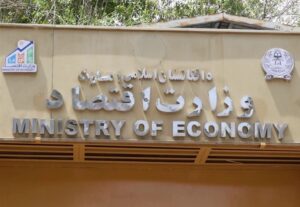KABUL (SW) – Analysts say that Kyrgyzstan’s decision to remove the Islamic Emirate from its list of proscribed groups is a move that could enhance political and economic relations between Afghanistan and Central Asia, as well as the broader international community.
Kyrgyzstan’s Ministry of Foreign Affairs recently announced that it has “removed the Islamic Emirate from its list of banned groups”. This decision is aimed at strengthening regional stability and supporting ongoing dialogues.
Kyrgyzstan follows Kazakhstan in officially removing the de-facto government Islamic Emirate from its list, with the Ministry stating that the action is intended to bolster stability in Afghanistan and the surrounding region.
The foreign affairs ministry of Kyrgyzstan also reaffirmed its commitment to supporting international efforts to ensure a stable and peaceful environment in Afghanistan.
Hamdullah Fetrat, the deputy spokesperson for the Islamic Emirate de-facto government, welcomed Kyrgyzstan’s decision, describing it as a step towards removing barriers to enhancing bilateral relations.
“Like other countries, Kyrgyzstan’s move reflects a political understanding of the Islamic Emirate in the region and globally, removing obstacles to further strengthening relations between the Islamic Emirate and other countries,” he said.
Shamshad Aziz Kazemi, an expert in international relations, suggested that this action could be a step towards international recognition of the Islamic Emirate. “… It could also align countries like Kyrgyzstan with Afghanistan in addressing common threats, such as those posed by ISIS, and developing a modern strategy to combat these threats,” he added.
Kyrgyzstan’s Prime Minister, Akylbek Zhaparov, announced that his country is interested in expanding trade and economic relations with Afghanistan, particularly in transportation, joint mineral exploration, and collaboration in energy, industry, and agriculture.
According to the Ministry of Industry and Commerce (MoIC), trade between Afghanistan and Kyrgyzstan reached 14 million dollars in the first eight months of the year 2024. Abdul Salam Akhundzada Jawad, spokesperson for the ministry, reported: “… the total amount is included of the $6 million in exports and $8 million in imports. Our main exports to Kyrgyzstan include steam boilers, bottled water, sesame, carpets, and energy drinks. The primary imports from Kyrgyzstan are petroleum, almonds, honey, asafetida, powdered milk, and natural gas.”
Referring to natural resources and geographical location of Afghanistan, economic experts highlight that the expansion of relations between South and Central Asian countries with Afghanistan could be mutually beneficial. Abdul Zohoor Modaber, an economic expert, emphasized that the strengthening of ties between Kyrgyzstan and Afghanistan could offer significant economic advantages in transportation and energy sectors.
“Afghanistan, with its rich natural resources, is valuable to neighboring countries and the region, including Kyrgyzstan. By connecting with Central Asian countries, Afghanistan can leverage a range of benefits. Additionally, Afghanistan’s strategic geopolitical position could serve as a crucial bridge between neighboring countries, South Asia, and Central Asia,” he added.
Over the past three years, the Islamic Emirate has engaged extensively with Central Asian countries and signed several trade and economic agreements. However, no country has yet officially recognized the de-facto government.
Kazakhstan was the first to remove the Islamic Emirate from its banned list, and Russia has also expressed willingness to follow suit.






